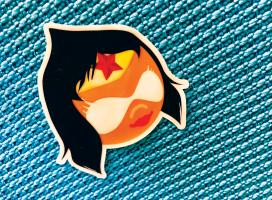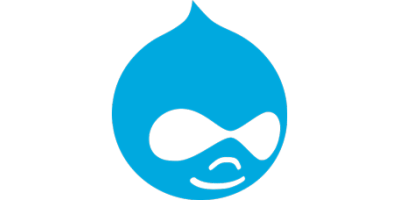The Women of the Drupal Community: webchick

Collection :
Name: Angela Byron
Drupal.org ID: webchick
Location: Vancouver, Canada
Job Title: Sr. Director, Product + Community Development
When Angie Byron (webchick) first found Drupal and the open source community she was enthralled by the freedom and power open source software offered to do anything. Drupal’s fundamental principles that everyone was welcome to use and learn the software were an open door to knowledge and creativity. Angie ran through that door, and now more than 15 years later, she hasn’t looked back.
Since her introduction to Drupal, Angie has worn practically every hat in the Drupal-sphere from developer to tech writer to usability advisor and project manager. Now in her current position as a Drupal core committer and Sr. Director of Community and Product Development for Acquia, she helps lead a team of more than 40,000 developers over the globe in the effort to improve the Drupal experience for all and bring fresh ideas into the community.
This time for our Women of Drupal series, Angie and I spoke about usability and accessibility improvements in Drupal 9, opportunities for virtual Drupal events and the need for everyone in tech to step outside their own worldviews and invite new perspectives into the open source conversation. Here’s how she sees the future of Drupal and how we can all play a part in keeping the door open to progress.
How did you first discover Drupal?

I found Drupal because of the “Spread Firefox” project which way back in the day was a community site where anybody could upload marketing materials and events at their local college campuses and communities around the Firefox web browser. I am one of those very curious people who like to view the source on every page, so I wanted to know what was powering the project, which was Drupal.
I got into open source as a student with Google Summer of Code in 2005 which let me get involved everywhere in the Drupal community from the Quiz module to updating documentation to getting involved in the webmaster and security teams. I liked that Drupal gave me the ability to try all these different things and help out as much as I possibly could.
My current role is on the Drupal Core Committer Team and as a Drupal Product manager, where I review changes people want to make to the software and make suggestions to help them be even better. I get to spend time exploring and understanding what our users need from Drupal and how we can make it better overall.
What are some of your favorite parts of being in the Drupal community?
What I’m struck by in the Drupal community is that it’s so open and accepting to new people. We eschew gatekeeping that sometimes exists in other software and tech spaces. When you’re just starting and learning about code, it can feel intimidating to ask questions and admit you don’t know something. That’s not true with Drupal.
People are so excited and welcoming. Drupal people are always like, “Let me tell you about this awesome thing!” I love how much the community is willing to help everyone.
Do you have any favorite memories from past Drupal meetups or DrupalCons?
My friend Melissa Anderson, got married at DrupalCon Chicago and asked that everybody wear pajamas to her wedding. So on the first day of the con, Dries called me on stage to accept a bouquet of flowers, and I had to get up on stage in front of everyone wearing my pajamas!
So that was a fun experience, and the wedding itself was really touching. It was just a small group of friends who had all worked together on these big web projects coming together to celebrate these real life connections.
Unfortunately, DrupalCon 2020 in Minneapolis had to be postponed due to the COVID-19 pandemic. Do you have any thoughts or advice for people who were planning on attending and now may have to change their plans?
It’s a different situation, but I think there are a lot of opportunities for the Drupal community to still meet up and share all the great content they had planned for the conference in a digital format. Last month, Drupal MidCamp switched their meetup to virtual sessions, including speaker learning sessions and virtual game night and contribution nights which everyone loved!
I think we could do more things like that to facilitate peer meetups and learnings, host virtual breakout sessions and share all that information. Having it recorded and online as presentations could also help bring all this Drupal knowledge to people in other parts of the world like Europe who weren’t able or planning on attending the Minneapolis event.
I’m hoping the Drupal Association can still make the event work and get people together at a later time, but our community has so many resources available that we can make public online in the meantime.
What Drupal function, project or contribution are you most proud of?
I'd say the work I'm most proud of is the work on usability in Drupal 7. Right at the time Drupal 6 was released, the University of Minnesota lead a "real life" usability test with Drupal, with one-way glass, eye tracking, click heat maps, expert analysis, the entire thing. Seeing people struggle lit a fire inside me, and I was appointed a core committer, in part to help push usability forward. Drupal 7 was the first release that I feel we really started to see a shift from Drupal being a project "by developers, for developers," to really thinking very intentionally about how content authors (aka the "victims" of Drupal ;)) would use the product day-to-day. Drupal 8 (and now 9) only has improved upon those foundations, with built-in Media, Workflows, Layouts, In-Place Editing and mobile-friendly editing tools. I can't wait to see where these efforts improve in 9.1 and above!
What Drupal function, project or contribution are you most looking forward to?
For Drupal 9.1+, I’m very excited about the redesign and the new default front-end theme Olivero. The theme was named after Rechel Olivero, a member of the Drupal community who sadly passed away last year. Rechel worked at the National Federation of the Blind, as Director of Organizational Technology and was a passionate advocate for making technology accessible to all people.
Usability and accessibility in Drupal is a major priority for me, and the new Olivero theme will be more accessible, have a modern color scheme and functional for anyone. What we learned in embarking on these efforts to improve web usability and accessibility was that it can’t be optional. If you want to make a difference, those standards have to be required in your software development process from Day 1. Accessibility has been a gate for any new Drupal updates since Drupal 7. An accessible, user-friendly experience is included right in Drupal core.
What else does the future of Drupal look like in your opinion? What new features/capabilities are you most hoping for/looking forward to in Drupal 9?
The biggest thing I'm excited about is that the upgrade path between Drupal 8 and Drupal 9 is so much easier than the upgrade path between 7 and 8 or any other previous upgrades. I think for a lot of people it will be a huge sigh of relief.
What other ways can we as a community work to foster more inclusion and diversity in tech?
I think the main problem to address is just being aware that the bias exists. People tend to gravitate toward people like them. So when people are in a position when they’re looking for new board members or leadership roles we turn to our own networks. So if your network is predominantly white, straight and male that’s who you’ll turn to first to fill those roles.
One thing that we can all do is acknowledge that shortcoming and reach out beyond our networks to those groups who are on the front lines of diversity initiatives to post job listings in their communities and invite them to participate in public-facing events. It requires a conscious choice.
So often, a conference organizer will be like, “We didn’t want an all-male panel, but no women applied.” But they don’t go further into investigating if they did enough to make sure women knew about the opportunity. If you want more visibility you need to think about things like “Where did we advertise this? Who did we reach out to?”
Diversity is a self-fulfilling one because people want to join spaces where they see themselves reflected. The more women and other underrepresented groups included from the inception, the more of those people are going to be willing to join because they can see that it’s an accepting community.
What advice would you give your younger self or someone who is just starting out?
I want people to know not to be afraid to put themselves out there whether that’s at an in-person event or asking a question on a forum. Drupal is such a supportive community and people will help you.
I’d also say to get active in groups like the Drupal Diversity & Inclusion Contribution Team that assembles diverse teams of people from marginalized groups -whether that’s women or queer people or people of different races - who build things together. In all my time involved in Drupal, what keeps me coming back is the people. The software’s great, but what I love most is getting to work with people all over the world and learn new stuff every day from those folks on the cutting edge of technology.
I’ve had some Drupal friends for over a decade, and that’s an incredible gift to have this support system, especially in hard times like so many are going through right now. So for anyone who is hesitant if Drupal is right for you, know you will find that friendship and that community culture.

